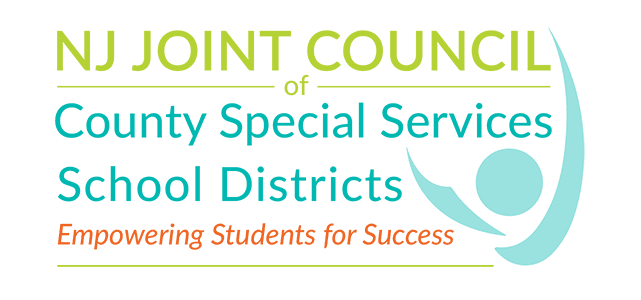“Children with the most intensive disabilities cannot serve as the test case for whether New Jersey schools can reopen safely.” – Dr. Howard Lerner, superintendent of Bergen County Special Services School District and chairman of the NJ Joint Council of County Special Services School Districts
TRENTON, N.J. – Many of New Jersey’s public school special education leaders have strong concerns about bringing children with significant disabilities and complex medical conditions back into school buildings this summer. The New Jersey Joint Council of County Special Services School Districts, comprised of eight county special services school districts across the state, in conjunction with the Educational Services Commission of New Jersey (ESCNJ), South Bergen Jointure Commission and Morris-Union Jointure Commission, have made the collective decision, after much thought and extensive discussion, to continue delivering all instruction and related services for Extended School Year (ESY) programs remotely.
“Children with the most intensive disabilities cannot serve as the test case for whether New Jersey schools can reopen safely,” said Dr. Howard Lerner, superintendent of Bergen County Special Services School District and chairman of the New Jersey Joint Council of County Special Services School Districts.
Lerner noted that he and many of his counterparts across the state have concerns that the New Jersey Department of Education’s announcement that ESY programs may begin July 6 gives parents “false hope” that these programs will resume in person and could do so with thoroughly vetted safety measures in place, especially given the short time frame, to adequately protect students with a range of special needs. “The state’s newly issued standards for summer school and youth summer camp are general in nature and are insufficient to guide the safe reopening of indoor programs for children with severe disabilities and complex medical conditions,” he said.
On Friday, the NJDOE issued guidance for summer learning programs, including the delivery of Extended School Year (ESY) services for students with disabilities, both in conjunction with the release of the New Jersey Department of Health’s COVID-19 Youth Summer Camp Standards. The NJDOE notes in the ESY guidance, “if a school district or receiving school determines that it would not be possible to meet summer program goals through in-person summer programming in accordance with the NJDOH standards, the school district may conduct summer programming, including ESY for students with disabilities, remotely…”
Lerner explained that many students in the ESY programs require 1:1 support for feeding, washing, using communication devices and other tasks requiring direct physical contact, making social distancing impossible. Many also cannot tolerate masks for extended periods of time, and others have medical conditions that physically prevent them from wearing masks. Social distancing, wearing a face covering and good hygiene practice are three of the main standards in the state’s guidance.
“I do question how my sons will return to school safely when the main recommendation for preventing the spread of the virus is wearing a mask,” said Amy Figueroa-Rivera of Eastampton, N.J., who has two sons, Brandon, 15, and Pedro, 16, enrolled in the Autism Program at Burlington County Special Services School District. “My sons haven’t worn their masks for more than an hour, so I can’t see them transitioning quickly to wearing them for 7 or more hours. One son likes to put items in his mouth, so I envision him ripping off his mask frequently. This makes me concerned not only for my sons’ health and safety, but also for the health and safety of the staff who work with them closely. I will be ready to send them back when I review a plan that makes it safe for everyone in the district to return.”
“We recognize that remote instruction requires tremendous family involvement and commitment, and that all parents, especially working parents, look forward to schools reopening. However, our overriding priority must be the safety of our students, their families and our staff, and it is not feasible to reopen schools for this vulnerable student population in July,” Lerner said.
Lerner has taken on a leadership role with the state as a member of the NJDOE’s School Reopening Steering Subcommittee for Leadership and Planning to help work toward a safe and thoughtful reopening of schools, taking into consideration the complexities of implementing public health prevention strategies in programs and schools serving students with special needs. His role as chairman with the Joint Council puts him in regular contact with all eight county special services school districts, which enroll more than 3,000 New Jersey students, and other special education leaders throughout the state.
“We need more time to ensure our students with special needs return to school safely,” echoed Mark Finkelstein, superintendent of ESCNJ. “Mid-June is too late to start preparing for a July 6 in-person start when we must schedule complex transportation routes, collaborate with local health officials on screening, train staff, retrofit indoor facilities, develop emergency and situational protocols and acquire sufficient personal protective equipment for our staff and those students who can wear it.”
“I appreciate the decision to stay remote; it would otherwise feel rushed,” said Kelly Ferrulli, of Lyndhurst, N.J., mom to Gianna, 13, a student in Bergen County Special Services School District’s Washington Elementary Program. “Restaurants can only serve food outside, so why would it make sense to bring our children together inside?”
Acknowledging that other families may have different experiences depending on their situations or how their child learns best, Ferrulli said that Gianna has responded well to remote learning, finding new ways to “express herself more” through the technology and gaining independence. “She knows what time she has classes, and she pays attention to her schedule,” she said. “We get support from Gianna’s teacher and therapists; they are right there all the time, and Gianna is staying engaged.”
Nurkia Corporan, of Evesham Twp., N.J., said that her son, Gio, 21, who is in the Transitions Program at Burlington County Special Services School District, also has adapted well to remote instruction, adopting a regimen each day to focus on his work. “I’m seeing him progress as he is able to exercise his right to choose a bit more in this environment; he’s feeling more empowered.”
“Over the summer, we will continue to work with families to provide our students in ESY programming with the high-quality instruction and services outlined in their Individual Educational Programs (IEPs), as we have been doing since schools closed in March,” said Lerner on behalf of the Joint Council member districts, the ESCNJ, and the South Bergen and Morris-Union Jointure Commissions. “We are confident that this is the most responsible approach as we work closely with one another and the NJDOE to plan for our students’ in-person return.”

